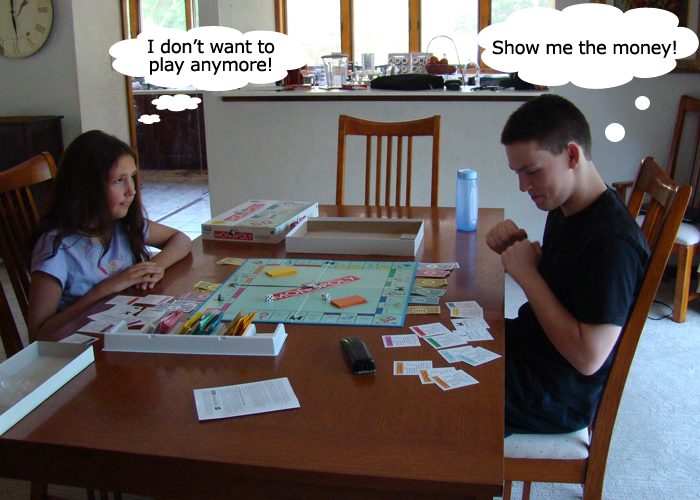I am super competitive. I enjoy a contest, a test of skill against someone else, and I enjoy winning. That being said, I’m OK if I lose, too. I’ve spoken to many people about this over the years and I’ve come to some interesting conclusions. I’m going to share with you my thoughts and what I’ve come up with: The Secret to Healthy vs. Dysfunctional Competition.
Most people enjoy a little competition – whether it’s in the form of a board game, a contact sport, or a contest of wills. The trick is in knowing when your competition is healthy and when it’s not. Being able to determine this and acting upon it is key in maintaining a good attitude and avoiding jealousy, pettiness and even burn out. We live in a fast paced society and everywhere you look there is competition. But is it too much? Do we need to back off a little bit? Well, yes. And no. I think that friends spurring each other on for professional, or personal growth is a very useful and valid type of competition. Being a good sport is a necessary skill for any successful adult. But how do you know whether this is a healthy competition? Start by asking yourself the following questions.
- Does this relationship make me feel better or worse about myself? If the answer is “worse”, there are two possibilities. Either you’re in a dysfunctional competition, or you’re taking it too seriously and need to step back a little and evaluate why you’re taking this so personally. Is it the other person(s)’ attitude? Or is it yours?
- Am I cheating, using an unfair advantage, or not playing by the rules in order to make myself look better at this? Totally dysfunctional. Is what or who you’re competing with someone (or thing) that you resent? Why? If it’s you, work on that – if it’s the “other”, remove yourself from the situation. Sometimes we have to realize that a relationship is just toxic – and address it, either by working on the relationship or leaving it behind.
- Is the end result something that will be good for me to accomplish? Something that adds to my life and journey? Or is it harming myself, my career, my family? Sometimes we can get caught in longstanding rivalries that cause us to act, or react in ways that are damaging. The end does not always justify the means.
- Is the competition about someone else’s talent or ability? A very common type of dysfunctional competition is the type where you’re not doing the competing, your children, your spouses, etc. are the ones that your “success” is based on. Small children reaching milestones, spouses career or financial earnings, or even appearance. You know the ones, you feel panicky and ever so slightly sleazy as you wrack up achievements to boast about. Lose this type as soon as you possibly can. It’s not good for you, the person you’re in competition with or the loved ones that are involved. We’re all on our own journeys and we should honor that.
- Alternately, are you the one competing on someone else’s behalf? Sometimes we can get caught up in the competition for a parent’s or mentor’s approval. Don’t engage – it doesn’t do anyone any good.
- In this competition, do you take the time to celebrate one another’s goals? Are you truly happy when the other person succeeds? How about them, are they truly happy and celebratory of your successes? Yes! This is the kind of healthy competition, friendly rivalry that can really spur us on to being the best we can be. If you have someone in your life like this, you are truly lucky and the simple truth is that we accomplish more and go farther with these kinds of relationships in our lives.
All in all, a little healthy competition in our lives can be the catalyst to great things. Be diligent about identifying the types of competition, limiting or removing completely the ones that aren’t healthy and celebrating the ones that are! Maybe take that person to lunch explore how you might help each other, even more.

